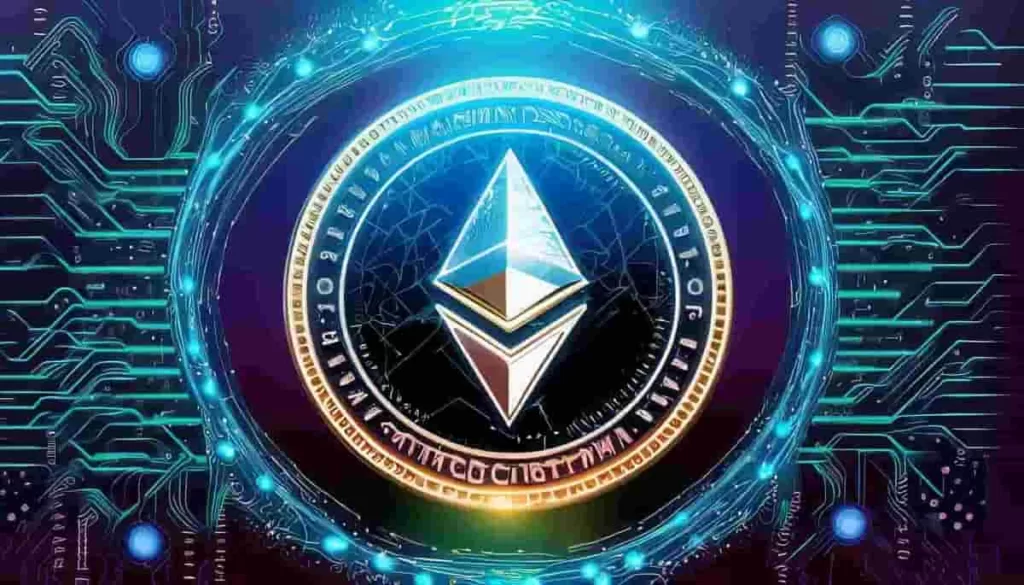In the ever-shifting landscape of cryptocurrency and blockchain technology, two luminous names consistently take center stage: Ethereum and Bitcoin. These innovative digital realms have not only reshaped our concept of currency but have also unveiled the enigmatic world of smart contracts. In this extensive guide, we will embark on a profound exploration of Ethereum and Bitcoin, unraveling the enigma behind their dominance in the realm of smart contracts.

Smart contracts, often described as self-executing agreements with their terms intricately etched in computer code, have fundamentally metamorphosed the terrain of commerce and financial management. They eradicate intermediaries and ensure that transactions occur automatically when specific conditions are met. The inception of the smart contract concept can be attributed to Nick Szabo, a computer scientist and cryptographer, in the early 1990s. However, it was the emergence of blockchain technology that breathed life into this concept.
Ethereum: The Vanguard of Smart Contracts
The Astonishing Adaptability of Ethereum
Ethereum materialized through the visionary insights of Vitalik Buterin and stands as a pioneering force in the smart contract realm. Its blockchain platform empowers developers with an extraordinary knack for crafting decentralized applications (DApps) and smart contracts with unparalleled dexterity. What truly sets Ethereum apart is its chameleon-like adaptability, a cornerstone of its strength. This adaptability endows it with the capability to handle a vast spectrum of tasks, ranging from straightforward transactions to intricate self-executing agreements, establishing it as a beacon in the cosmos of smart contracts.
Ether (ETH) – The Vital Fuel of Ethereum
Ether (ETH), the indigenous cryptocurrency of the Ethereum network, plays a pivotal role in facilitating smart contracts. It serves not only as a digital currency but also as a means to cover transaction fees and computational services within the network. This dual functionality elevates Ethereum’s utility and value proposition.
To learn more about it, please watch this video and visit our YouTube channel, Cryptowini.”
Ethereum 2.0 – Pioneering Scalability
Ethereum is going through a dramatic transformation known as Ethereum 2.0 in order to address scalability issues and improve network efficiency. The proof-of-stake (PoS) consensus method will replace the energy-intensive proof-of-work (PoW) system in this transition. This innovation strengthens Ethereum’s status as a pathfinder in the field of smart contracts by reducing energy consumption while also speeding up transaction times.
The Evolutionary Journey of Bitcoin
While Bitcoin primarily functions as a digital store of value, often heralded as “digital gold,” it possesses capabilities that extend beyond being a mere cryptocurrency. Bitcoin’s scripting language empowers it with fundamental smart contract functionalities, rendering it a viable option for executing specific types of agreements.

Security and Immutable Trust
Bitcoin’s unmatched security and immutability are two compelling facets that make it an enticing choice for smart contracts, particularly those involving substantial financial transactions. Its robust network, underpinned by an extensive mining infrastructure, guarantees the integrity and dependability of smart contract executions.
A Comparative Examination
Now, let us juxtapose Ethereum and Bitcoin in terms of their suitability for smart contracts.
Ethereum vs. Bitcoin: A Duel of Excellence in Smart Contracts
Ethereum boasts a broader spectrum of smart contract functionalities, making it suitable for a diverse range of applications. In contrast, Bitcoin, with its unyielding security and immutability, excels in scenarios where trust and reliability take precedence.
Prospects of Smart Contracts
As the adoption of blockchain technology continues its relentless ascent, the future of smart contracts appears exceedingly promising. These self-executing agreements possess the potential to disrupt various sectors, including finance, supply chain management, and legal services. Ethereum and Bitcoin, each armed with their own unique strengths, are poised to play pivotal roles in shaping this future.
Frequently Asked Questions (FAQs)
1. What exactly are smart contracts?
- Smart contracts are self-executing digital agreements with predefined conditions encoded into computer code. They automate transactions, eliminating the need for intermediaries.
2. Who is credited with introducing the concept of smart contracts?
- The concept of smart contracts was initially proposed by Nick Szabo, a computer scientist and cryptographer, in the early 1990s.
3. What sets Ethereum apart in the realm of smart contracts?
- Ethereum is renowned for its remarkable versatility, enabling developers to create decentralized applications (DApps) and execute various types of smart contracts.
4. How does Ether (ETH) contribute to Ethereum’s smart contracts?
- Ether (ETH) serves a dual purpose as a digital currency and a means to cover transaction fees and computational services within the Ethereum network, enhancing its utility.
5. What steps is Ethereum taking to address scalability issues?
- Ethereum is undergoing a significant transformation with Ethereum 2.0, transitioning from the energy-intensive proof-of-work (PoW) to the more sustainable proof-of-stake (PoS) consensus mechanism. This change reduces energy consumption and accelerates transaction speeds.
6. Why is Bitcoin favored for certain smart contract use cases?
- Bitcoin’s unmatched security and immutability make it an appealing choice for smart contracts, especially those involving substantial financial transactions.
7. What is the future outlook for smart contracts?
- As the adoption of blockchain technology continues to rise, the future of smart contracts appears promising. They have the potential to disrupt various sectors, including finance, supply chain management, and legal services. Ethereum and Bitcoin, with their unique strengths, are poised to play pivotal roles in shaping this future.
Conclusion
In summation, Ethereum and Bitcoin have firmly entrenched themselves as pioneers in the smart contract arena. Ethereum’s versatility and ongoing enhancements make it the preferred platform for developers, while Bitcoin’s security and immutability provide a robust foundation for specific smart contract use cases. As the blockchain ecosystem evolves, these two giants will continue to exert substantial influence, molding the landscape of decentralized agreements. Whether you’re a developer venturing into DApps or an investor seeking diversification, comprehending the significance of Ethereum and Bitcoin in the realm of smart contracts is absolutely imperative.
Read More
Unlocking the Power of Blockchain in Finance: 10 Ways It’s Changing Money Management Forever in 2023
Unleashing the Potential of a Cross-Chain Super Network in the Cryptocurrency Realm in 2023






























